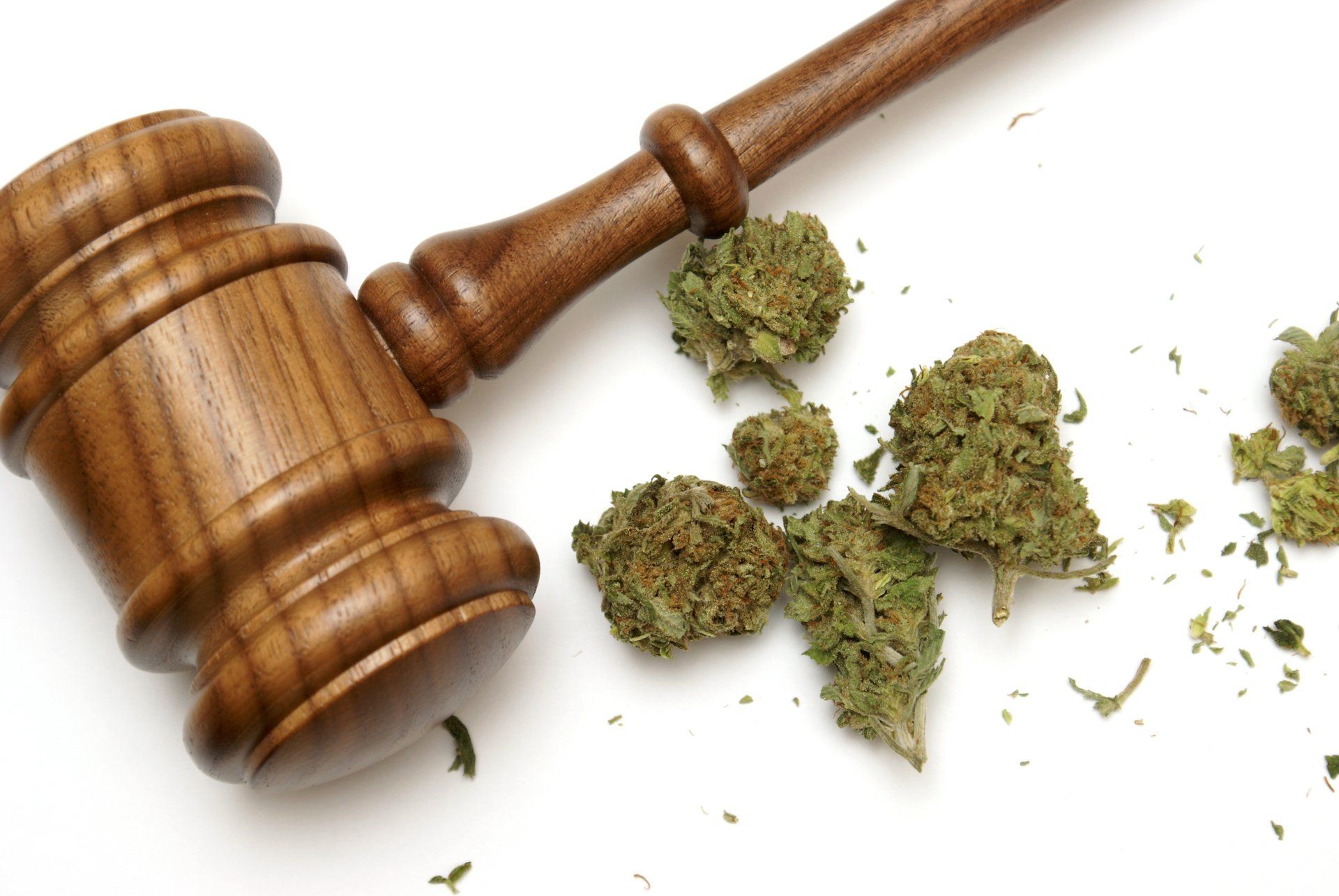Shifting the Burden: Florida now offers the greatest protection of any state under its Stand Your Ground Laws
- By Antonio D. Quinn, Esq.
- •
- 29 Jan, 2019
- •
What exactly are a person's rights under "Stand Your Ground" in Florida?

No Duty To Retreat
Several high profile cases involving the law have thrust Florida's "Stand Your Ground" law into the national spotlight in revent years. As a result of the what has been viewed by many to be unjust results in some of these cases, notably the Trayvon Martin case which involved the shooting of an unarmed African American teenager, the public at large has grown to largely misunderstand exactly what Florida's "Stand Your Ground" laws are and what they do. Many people who have not received legal or law enforcement training are unclear or unsure of in what manner and in what context they are legally justified to use force against another individual. Immunity under Florida's Stand Your Ground law means that an individual is immune from criminal prosecution and from civil liability for the acts for which they claimed the immunity. While Florida's Stand Your Ground laws have gained the most national attention, Florida is far from the only state to have passed similar laws. Alabama, Alaska, Arizona, Georgia, Idaho, Indiana, Iowa, Kentucky, Louisiana, Michigan, Mississippi, Missouri, Montana, Nevada, New Hampshire, North Carolina, Oklahoma, Pennsylvania, South Carolina, South Dakota, Tennessee, Texas, Utah, West Virginia and Wyoming all have legislatively passed a version of Stand Your Ground Laws.
Florida's Stand Your Ground Law simply codifies the common sense notion of self defense. As its name implies the law legally entitles a person to stand their ground when faced with the imminent use of force by another individual. This differentiates Florida from many other states where a person has a duty to retreat before they are entitled to defend themselves. In a "duty to retreat" state a person is obligated to to retreat to a place of safety if possible before using force to defend themselves. Florida like other "Stand Your Ground" states as no such legal requirement. Florida Statute 776.012 states that a person is justified in the use of force or in the threatened use of force except deadly force against another when the person reasonably believes that such use of force is necessary to defend himself or another against another person's imminent use of unlawful force. The statute explicitly states that a person does not have a duty to retreat when defending himself or another through the use or threatened use of force. The Stand Your Ground statute provides that a person is justified in the use of deadly force if the person reasonably believes that deadly force is necessary to prevent imminent death, great bodily harm or to prevent oneself or another from being the victim of a forcible felony. If a criminal defendant believes that they are entitled to immunity from prosecution under the SYG law, then the individual's attorney must file a Motion with the court citing the reasons why it is believed that the client is entitled to immunity. The presiding court will then set an adversarial hearing and at that hearing the Judge in the case will make the determination of whether or not the defendant is entitled to immunity under SYG. If the judge in the case rules in the defendant's favor, then the charges must be dismissed and the case cannot be submitted to a jury because the court has ruled that the defendant is legally immune from prosecution. An individual is not entitled to a jury during a Stand Your Ground hearing and at the hearing the judge will be the decider of disputed issues of fact. If a judge denies a claim of immunity under the SYG law, then a defendant has several avenues still available. The Florida courts have ruled that a denial of immunity under the SYG law is appealable while the criminal case is still pending in the circuit courts. Most legal issues are not viewed as ripe for appeal. If all appeals have been exhausted, then self-defense can still be used as a defense during a jury trial. Defendant's essentially get more than one bite at the apple in SYG cases in Florda. Even if a judge denies a claim of immunity under the SYG law, a jury can still render a verdict which concludes that the use of force was justifiable under the circumstances. There is very little risk involved in going forward with a Stand Your Ground claim, because a denial of immunity under the statute only means that the case can then proceed to trial where a jury will still have an opportunity to evaluate the case.
The Burden of Proof in Stand Your Ground Cases
In June of 2017, then Governor Rick Scott signed into law a bill which effectively shifts the burden of proof in Stand Your Ground cases from the defendant claiming the immunity onto the prosecution. Florida is the only state in the country currently which places the burden of proof upon the prosecution. Under prior law, a person claiming immunity for prosecution under the SYG law beared the burden of proving by clear and convincing evidence that they were entitled to immunity from prosecution under the statute. Prior to June of 2017 the statute itself was silent with regard to what party would bear the burden of proof at a SYG hearing. The current version of the law place the burden upon the prosecution. The current law states that once a claim of statutory immunity has been raised by the defense, then the burden is upon the prosecution to prove by clear and convincing evidence that the defendant is not entitled to immunity. There has been a great deal of litigation in Florida concerning whether or not the statutory change applies retroactively to cases which were already pending in the courts at the time that the new law was passed. Prosecutors of course were arguing in favor of applying the old law to old cases because the new standard is much harder for them to satisfy. The Florida District Courts of Appeals have had divergent decisions on this issue, however it is becoming less important as less and less cases that occurred before the law was changed are still lingering in the courts. The one time that I confronted this issue in Circuit court in my capacity as a criminal defense attorney, the judge in the case ruled that the law did not apply retroactively which I respectfully disagreed with and argued against, however following the hearing the Judge ruled that my client was entitled to immunity when applying the old statute where the defense still bore the burden of proof, so it was not necessary to appeal the burden of proof issue. Following the 2017 statutory change, Florida's Stand Your Ground laws provide greater protection to defendants than any of the 22 states which have SYG laws.
The Florida Castle Doctrine
The castle doctrine evolved from the common law notion that that "a man'd home is his castle". Many states including some "duty to retreat" states still adhere to what is known as the "castle doctrine". In keeping with the Florida legislature's approach towards self-defense, the castle doctrine has been codified by the Florida legislature by Florida Statute 776.013. The Florida law provides that a person has no duty to retreat and may stand their ground when they are in a dwelling, residence or occupied vehicle and is justified in using non-deadly force to defend against an imminent use of unlawful force or to use deadly force is such deadly force is reasonably believed to be necessary to defend against another's imminent use of deadly force or defend oneself or another from an imminent forcible felony. Pursuant to the castle doctrine, an individual's protections under the law to use force to defend themselves is at its highest when the individual claiming the immunity is either in their home or in their vehicle.
Application of Stand Your Ground to Police Officers
In a recent case which originated in Broward County, the Florida Supreme Court ruled that Stand Your Ground protections are applicable to police officers. (See State of Florida v. Peraza) In a unanimous ruling the Florida Supreme Court held that "law enforcement officers are eligible to assert Stand Your Ground immunity, even when the use of force occurred in the course of making a lawful arrest". The case originated from a situation where a police officer shot and killed a black man after he pointed what turned out to be an unloaded air rifle at the officer. A grad jury had indicted Deputy Peraza for manslaughter. Many scholars have expressed concern over this decision partially because Florida statute 776.05 already provides than an officer can use any force they reasonably believe to be necessary to defend against bodily harm while making an arrest.
Application of Stand Your Ground Against Police Officers
Florida Statute 776.051 provides that an individual is not justified in the use or threatened use of force to resist an arrest by a police officer, or to resist an officer who is "engaged in a lawful duty" or if the officer was acting in good faith and is reasonably known to be a police officer. This statute has the unfortunate effect of disallowing the use of force against a police officer who is trying to effectuate an illegal arrest if the officer has a good faith basis to believe that the arrest was legal. Likewise if force is used against a police officer who engaging in an unlawful duty, the law does not provide immunity for the individual as long as the police officer can point to a good faith basis for believing that he was engaged in a lawful duty. The "lawful duty" situation arises most often in the context of a pat down search. If person uses force to resist a search of their person of belongings that is an illegal search, then they will legally be guilty of resisting arrest with violence as long as the police officer can point to a good faith basis for believing that he had a legal justification for conducting the search.
While Florida's Stand Your Ground Law does not provide for very much protection from acts committed by the police or other law enforcement personnel, Florida law still provides to its citizens the broadest protections under the SYG statute of any of the 50 states. This is because following the June, 2017 legislation, Florida has become the only state to place the burden of proof upon the prosecution to prove by clear and convincing evidence that a defendant is not entitled to immunity once an immunity claim has been raised. This is actually in keeping with the Constitutional principle that guilt must be proved by the prosecution beyond a reasonable doubt. There is a practical dilemna caused by the 2017 legislative change however. If an in individual uses deadly force to defend themselves against an alleged aggressor and there are no other witnesses then it becomes extremely difficult if not impossible for the prosecution to be able to meet their burden. If the only witness to the incident is the person claiming immunity, then it becomes virtually impossible for the State to prove that the Defendant is not entitled to the immunity by clear and convincing evidence. So not only does Florida offer the greatest Stand Your Ground protections of any of the 50 states, however there is a plausible argument to be made that after the June 2017 legislation that the protections extend so far that they may improperly deny justice to victims of murder in which there was no witnesses. This is an issue which is sure to be confronted by the Appeals courts in Florida and perhaps revisited by the legislature at some point in the future. If you or someone that you care about is facing a criminal charge in Florida and you believe that Stand Your Ground Immunity applies in your case, Quinn Law, P.A. offers free consultations. The office can be contacted at (954) 463-0440 and I would be happy to personally go over your case with you and evaluate what legal defense would be applicable to your situation.
Several high profile cases involving the law have thrust Florida's "Stand Your Ground" law into the national spotlight in revent years. As a result of the what has been viewed by many to be unjust results in some of these cases, notably the Trayvon Martin case which involved the shooting of an unarmed African American teenager, the public at large has grown to largely misunderstand exactly what Florida's "Stand Your Ground" laws are and what they do. Many people who have not received legal or law enforcement training are unclear or unsure of in what manner and in what context they are legally justified to use force against another individual. Immunity under Florida's Stand Your Ground law means that an individual is immune from criminal prosecution and from civil liability for the acts for which they claimed the immunity. While Florida's Stand Your Ground laws have gained the most national attention, Florida is far from the only state to have passed similar laws. Alabama, Alaska, Arizona, Georgia, Idaho, Indiana, Iowa, Kentucky, Louisiana, Michigan, Mississippi, Missouri, Montana, Nevada, New Hampshire, North Carolina, Oklahoma, Pennsylvania, South Carolina, South Dakota, Tennessee, Texas, Utah, West Virginia and Wyoming all have legislatively passed a version of Stand Your Ground Laws.
Florida's Stand Your Ground Law simply codifies the common sense notion of self defense. As its name implies the law legally entitles a person to stand their ground when faced with the imminent use of force by another individual. This differentiates Florida from many other states where a person has a duty to retreat before they are entitled to defend themselves. In a "duty to retreat" state a person is obligated to to retreat to a place of safety if possible before using force to defend themselves. Florida like other "Stand Your Ground" states as no such legal requirement. Florida Statute 776.012 states that a person is justified in the use of force or in the threatened use of force except deadly force against another when the person reasonably believes that such use of force is necessary to defend himself or another against another person's imminent use of unlawful force. The statute explicitly states that a person does not have a duty to retreat when defending himself or another through the use or threatened use of force. The Stand Your Ground statute provides that a person is justified in the use of deadly force if the person reasonably believes that deadly force is necessary to prevent imminent death, great bodily harm or to prevent oneself or another from being the victim of a forcible felony. If a criminal defendant believes that they are entitled to immunity from prosecution under the SYG law, then the individual's attorney must file a Motion with the court citing the reasons why it is believed that the client is entitled to immunity. The presiding court will then set an adversarial hearing and at that hearing the Judge in the case will make the determination of whether or not the defendant is entitled to immunity under SYG. If the judge in the case rules in the defendant's favor, then the charges must be dismissed and the case cannot be submitted to a jury because the court has ruled that the defendant is legally immune from prosecution. An individual is not entitled to a jury during a Stand Your Ground hearing and at the hearing the judge will be the decider of disputed issues of fact. If a judge denies a claim of immunity under the SYG law, then a defendant has several avenues still available. The Florida courts have ruled that a denial of immunity under the SYG law is appealable while the criminal case is still pending in the circuit courts. Most legal issues are not viewed as ripe for appeal. If all appeals have been exhausted, then self-defense can still be used as a defense during a jury trial. Defendant's essentially get more than one bite at the apple in SYG cases in Florda. Even if a judge denies a claim of immunity under the SYG law, a jury can still render a verdict which concludes that the use of force was justifiable under the circumstances. There is very little risk involved in going forward with a Stand Your Ground claim, because a denial of immunity under the statute only means that the case can then proceed to trial where a jury will still have an opportunity to evaluate the case.
The Burden of Proof in Stand Your Ground Cases
In June of 2017, then Governor Rick Scott signed into law a bill which effectively shifts the burden of proof in Stand Your Ground cases from the defendant claiming the immunity onto the prosecution. Florida is the only state in the country currently which places the burden of proof upon the prosecution. Under prior law, a person claiming immunity for prosecution under the SYG law beared the burden of proving by clear and convincing evidence that they were entitled to immunity from prosecution under the statute. Prior to June of 2017 the statute itself was silent with regard to what party would bear the burden of proof at a SYG hearing. The current version of the law place the burden upon the prosecution. The current law states that once a claim of statutory immunity has been raised by the defense, then the burden is upon the prosecution to prove by clear and convincing evidence that the defendant is not entitled to immunity. There has been a great deal of litigation in Florida concerning whether or not the statutory change applies retroactively to cases which were already pending in the courts at the time that the new law was passed. Prosecutors of course were arguing in favor of applying the old law to old cases because the new standard is much harder for them to satisfy. The Florida District Courts of Appeals have had divergent decisions on this issue, however it is becoming less important as less and less cases that occurred before the law was changed are still lingering in the courts. The one time that I confronted this issue in Circuit court in my capacity as a criminal defense attorney, the judge in the case ruled that the law did not apply retroactively which I respectfully disagreed with and argued against, however following the hearing the Judge ruled that my client was entitled to immunity when applying the old statute where the defense still bore the burden of proof, so it was not necessary to appeal the burden of proof issue. Following the 2017 statutory change, Florida's Stand Your Ground laws provide greater protection to defendants than any of the 22 states which have SYG laws.
The Florida Castle Doctrine
The castle doctrine evolved from the common law notion that that "a man'd home is his castle". Many states including some "duty to retreat" states still adhere to what is known as the "castle doctrine". In keeping with the Florida legislature's approach towards self-defense, the castle doctrine has been codified by the Florida legislature by Florida Statute 776.013. The Florida law provides that a person has no duty to retreat and may stand their ground when they are in a dwelling, residence or occupied vehicle and is justified in using non-deadly force to defend against an imminent use of unlawful force or to use deadly force is such deadly force is reasonably believed to be necessary to defend against another's imminent use of deadly force or defend oneself or another from an imminent forcible felony. Pursuant to the castle doctrine, an individual's protections under the law to use force to defend themselves is at its highest when the individual claiming the immunity is either in their home or in their vehicle.
Application of Stand Your Ground to Police Officers
In a recent case which originated in Broward County, the Florida Supreme Court ruled that Stand Your Ground protections are applicable to police officers. (See State of Florida v. Peraza) In a unanimous ruling the Florida Supreme Court held that "law enforcement officers are eligible to assert Stand Your Ground immunity, even when the use of force occurred in the course of making a lawful arrest". The case originated from a situation where a police officer shot and killed a black man after he pointed what turned out to be an unloaded air rifle at the officer. A grad jury had indicted Deputy Peraza for manslaughter. Many scholars have expressed concern over this decision partially because Florida statute 776.05 already provides than an officer can use any force they reasonably believe to be necessary to defend against bodily harm while making an arrest.
Application of Stand Your Ground Against Police Officers
Florida Statute 776.051 provides that an individual is not justified in the use or threatened use of force to resist an arrest by a police officer, or to resist an officer who is "engaged in a lawful duty" or if the officer was acting in good faith and is reasonably known to be a police officer. This statute has the unfortunate effect of disallowing the use of force against a police officer who is trying to effectuate an illegal arrest if the officer has a good faith basis to believe that the arrest was legal. Likewise if force is used against a police officer who engaging in an unlawful duty, the law does not provide immunity for the individual as long as the police officer can point to a good faith basis for believing that he was engaged in a lawful duty. The "lawful duty" situation arises most often in the context of a pat down search. If person uses force to resist a search of their person of belongings that is an illegal search, then they will legally be guilty of resisting arrest with violence as long as the police officer can point to a good faith basis for believing that he had a legal justification for conducting the search.
While Florida's Stand Your Ground Law does not provide for very much protection from acts committed by the police or other law enforcement personnel, Florida law still provides to its citizens the broadest protections under the SYG statute of any of the 50 states. This is because following the June, 2017 legislation, Florida has become the only state to place the burden of proof upon the prosecution to prove by clear and convincing evidence that a defendant is not entitled to immunity once an immunity claim has been raised. This is actually in keeping with the Constitutional principle that guilt must be proved by the prosecution beyond a reasonable doubt. There is a practical dilemna caused by the 2017 legislative change however. If an in individual uses deadly force to defend themselves against an alleged aggressor and there are no other witnesses then it becomes extremely difficult if not impossible for the prosecution to be able to meet their burden. If the only witness to the incident is the person claiming immunity, then it becomes virtually impossible for the State to prove that the Defendant is not entitled to the immunity by clear and convincing evidence. So not only does Florida offer the greatest Stand Your Ground protections of any of the 50 states, however there is a plausible argument to be made that after the June 2017 legislation that the protections extend so far that they may improperly deny justice to victims of murder in which there was no witnesses. This is an issue which is sure to be confronted by the Appeals courts in Florida and perhaps revisited by the legislature at some point in the future. If you or someone that you care about is facing a criminal charge in Florida and you believe that Stand Your Ground Immunity applies in your case, Quinn Law, P.A. offers free consultations. The office can be contacted at (954) 463-0440 and I would be happy to personally go over your case with you and evaluate what legal defense would be applicable to your situation.




